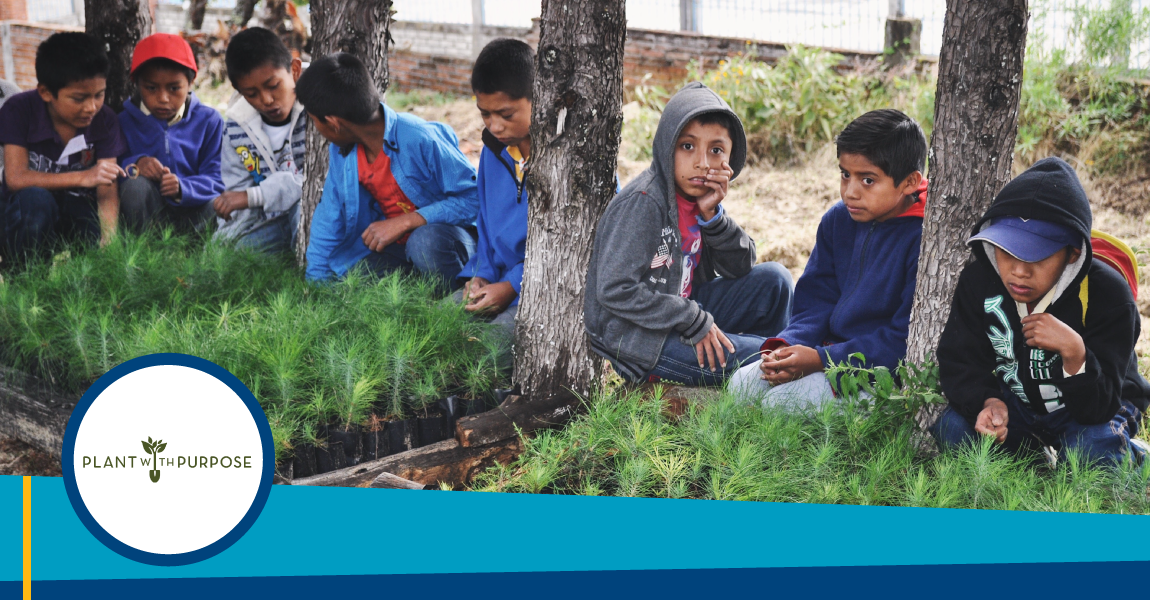Advancing Collaboration with Plant With Purpose
About the Organization
Plant With Purpose’s programs equip farming families around the world to increase farm yields, heal damaged ecosystems, improve nutrition, and increase household savings and opportunities. This integrated approach solves two major issues facing the world today: environmental degradation and rural poverty.
Featured Guest:
Scott Sabin,
Chief Executive Officer
Plant With Purpose
Approach to Collaboration
35 years ago, our organization was involved in one country — the Dominican Republic. Today, we’re a mid-sized nonprofit working in eight different countries. Within that length of time, we’ve learned the importance of collaboration. Our experience has taught us that we can avoid a lot of mistakes just by simply working together and learning from others.
We’ve taken on some bigger project collaborations; at the moment, we’re working with Hope International, which does very complimentary work with economic empowerment savings groups, to finalize a specific collaboration in Burundi. We are also discussing a much larger conceptual collaboration around the world. In this collaboration, we’ll provide our agricultural training, regenerative agriculture, and watershed restoration training to their savings groups.
Application of the 9 Considerations for Collaboration
Build Trust
Trust is our nonprofit’s most valuable asset. There are several ways to cultivate trust, from earning BBB Wise Giving Alliance certifications, to lowering our guard and building relationships in a collaborative environment.
Have a Vision
For about 12 years, we were a small organization that was living hand to mouth. Our situation was analogous to the farmers we were serving. Farmers often cut trees because they can’t think about the future – they’re thinking about how they can feed their families today. Just like farmers who need a microfinance loan to give them some room to think long term, we needed a little financial runway. Once we had that, we were able to better plan for the future. Thankfully, we’re now in a place where we’re financially blessed, in part due to our five-year strategic plan Thrive25. Since our forward-looking approach is about scaling, we’ve identified a partner, Hope International, who’s experienced with scaling programs. We’re looking forward to collaborating with them so we can expand our reach together.
Seek to Assure the Success of Your Collaborators
Our operations are grounded in the notion that everything we do is open-source. We’re not trying to build our own empire, and we believe in the success of our partners. We believe our focus on the value created for the farmers, as opposed to merely the benefit to our own organization, makes us reliable partners.
Take Stock
Our collaboration with Hope International will be our largest to date. The process of collaborating has helped us better understand what our own assets are — what we do well, what we have to offer, and where we can improve. Collaboration was the impetus for us to begin taking stock.
Start Small
In the case of Burundi, we started small and designed a two-year pilot project working with 74 savings groups and two watersheds. Our full agricultural training lasts four to six years, which is a longer-term vision, but we set up a two-year trial because we don’t want to get too far ahead of ourselves. We have dreams envisioned for projects there and beyond, but we’re starting small and we’re hopeful it will lead to more collaborations.
Fail Fast, and Build Rigorous Feedback Loops
Each level of our collaborations requires clear communication. We work through four parties — in Burundi, we work with a local affiliated partner, who in turn, works through Hope’s locally affiliated partner. We’re open with each other at all levels, which is helpful in terms of receiving feedback. If something goes a bit awry, we’re comfortable with sharing our concerns, knowing it won’t impede our progress.
We aim not to just have a series of bilateral relationships, but we encourage multilateral relationships. We recently helped to launch a new partner in Ethiopia; their staff traveled to our team in Tanzania for training. Similarly, our Congolese staff was trained in Burundi. We actively try to increase these multilateral channels of collaboration.
Take a Portfolio Approach
In addition to our larger-scale collaborations, we have several local partnerships. We recently became a member of the Global EverGreening Alliance, a fairly large-scale collaboration of organizations that are involved in tree planting and reforestation. Individual organizations often don’t have the funds on their own, so the alliance helps organizations come together for joint projects.
Consider Non-traditional Partners
We’re always open to non-traditional partnerships. Many of our partnerships fit within the sphere of cause-related marketing or corporate social responsibility. We partner with Robinson Nursery and Kellogg Garden Products, which sells organic soil amendments. We believe there are opportunities for growth and room for truly creative partnerships.
Keep Your Donors Apprised of Your Collaborations
Interest on the part of donors is a vital aspect of our funding and support. Many of our donors and prospective donors already support Hope International. One of the most exciting things we look forward to is being able to report back to our donors and share the progress of our partnerships.
Future Collaborations
We’re currently focused on our collaboration with Hope International. We’re very proud of the work we’ve done over the past year and we’re hoping this becomes a long-term partnership.
This article was composed by Rachel Romana Liu.


